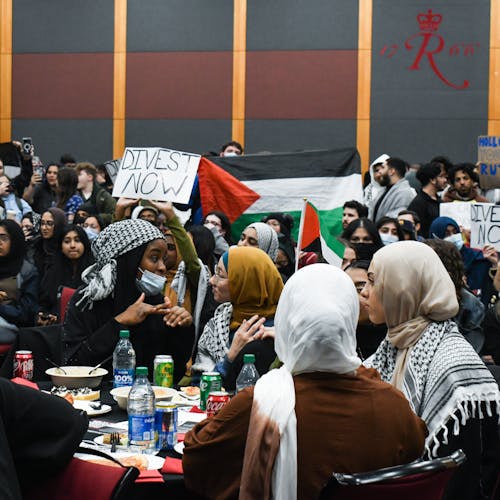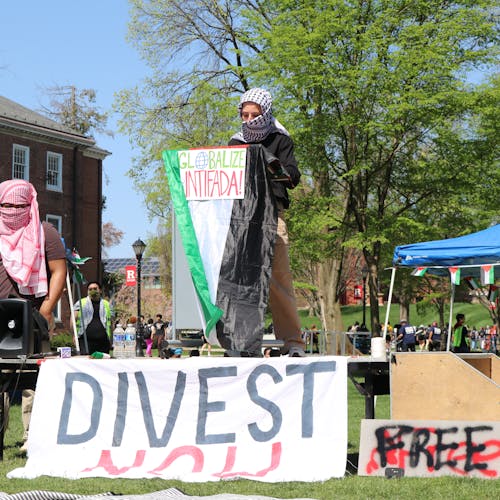Festival to show ‘Meherjaan’ film shot in Bangladesh

The New Jersey Film Festival this Sunday will screen Meherjaan, a film that centers on loving the other, a notion exemplified through the character Meher, a young Bengali woman who falls in love with an enemy soldier during the Indo-Pakistani war of 1971.
The film’s writer and director, Rubaiyat Hossain, chose to highlight this narrative in her film in response to the nationalism she encountered growing up during the 1980s in Bangladesh, where the film was shot.
Hossain said after the war, which involved Pakistani soldiers raping many women from Bangladesh and Bengali freedom fighters training in India to challenge Pakistan for the country’s independence, widespread nationalism developed.
“I grew up a very nationalist child, I went to a Bengali school … and I always supported India versus Pakistan,” she said. “I was reading books from writers whose fathers died in the war. One said he would not even take a connecting flight if the plane landed in Pakistan.”
Post-war film and literature painted a picture of female rape victims as women who bravely sacrificed their chastity for their country, which gave Hossain the idea that the Bangladeshis equated the woman’s body with the land.
“When the body is invaded, the nation is shamed,” Hossain said. “The individual voice and pain of the woman was marginalized and she was desexualized.”
Upon realizing this, Hossain began looking at the war between the Pakistanis and the Bangladeshis from a different perspective.
“I broke off from the binary of hero and villain,” she said.
After interviewing a woman who had an affair with a Pakistani soldier during the war for her thesis at the University of Pennsylvania, Hossain decided to show this narrative in a feature film.
“She talked to me about this story of compassion and love,” Hossain said.
While challenging the idea that Pakistanis are evil in a film set in Bangladesh, Hossain encountered a lot of backlash from the public, she said.
The day after the film began showing in 2011, a letter was published in a newspaper that accused Hossain of degrading heroic women in the war and the freedom fighters, she said.
“Someone said I worked as a Pakistani agent, [people were] saying ridiculous things like that,” she said.
After only a week in theaters, the film was yanked off screens after a soldier from the Bangladeshi army commanded the distributor to do so, Hossain said.
The director said she did not expect people would be so angry about her film.
“I have a different way of thinking, I came to America,” she said. “I only used my voice as a woman. That’s what America gave me.”
A particularly hurtful message on an intellectual blog in Bangladesh said that a Pakistani solider raped Hossain’s mother and that is how she was born, she said.
“That’s ridiculous because I was born in 1981,” Hossain said.
While touring with the film at festivals, Hossain said many men asked her husband and producer of Meherjaan, Ashique Mostafa, who studied film at the School of Visual Arts in New York, why he made his wife make his film.
“I have really worked my ass off to make this film, and when I hear that [sic], you know?” she said.
Ashique Mostafa said he did not expect such a strong reaction to the film from the public.
“Of course we expected some kind of debate and we wanted to open up the discussion, but we didn’t expect it would be that kind of extreme reaction,” he said.
The film is on the festival circuit again, but Rubaiyat Hossain said she is disappointed the film was taken out of theaters in Bangladesh.
“I still feel defeated. I made this film in Bangladesh, I was able to take it to the theater, but I kind of lost there,” she said.
The few screenings of Meherjaan in Bangladesh were sold out, she said, and although it gets viewed in festivals, Hossain is not making the money she had hoped to make.
As one of only a few Bangladeshi female filmmakers, Hossain said her job is difficult at times.
“It’s definitely very challenging. Even globally, filmmaking [and] directing have been a man’s profession,” she said. “Very few female directors can really make it out there.”
Even giving her crew direction was troubling for Hossain.
“Shooting is hard to get your authority [over] the whole crew, because you’re a woman,” she said.
Albert Nigrin, director of the New Jersey Film Festival, said Meherjaan is a “Romeo and Juliet” kind of story in the sense that it is trying to bridge cultures at a very difficult time.
“American audiences will find it moves slowly, but that’s a strong suit. … It’s not a roller coaster ride.”
He said women are the central focus of the film, which is a forward-thinking idea considering its target audience.
Students can learn about differences in the world through watching the film, Nigrin said.
“The world is not necessarily a place where everyone comes together, only through love can that be obtained,” he said.
Ashique Mostafa said he and his wife still plan to make movies in Bangladesh in the future.
“[The people of Bangladesh] have a lot of stories to tell that have not been told,” he said. “There are so many things happening in the country that we want to tell for the global audience.”
Students can purchase tickets for Meherjaan at the door for $9 before the screening, which begins Sunday at 7 p.m. in room 105 of Voorhees Hall on the College Avenue campus.



